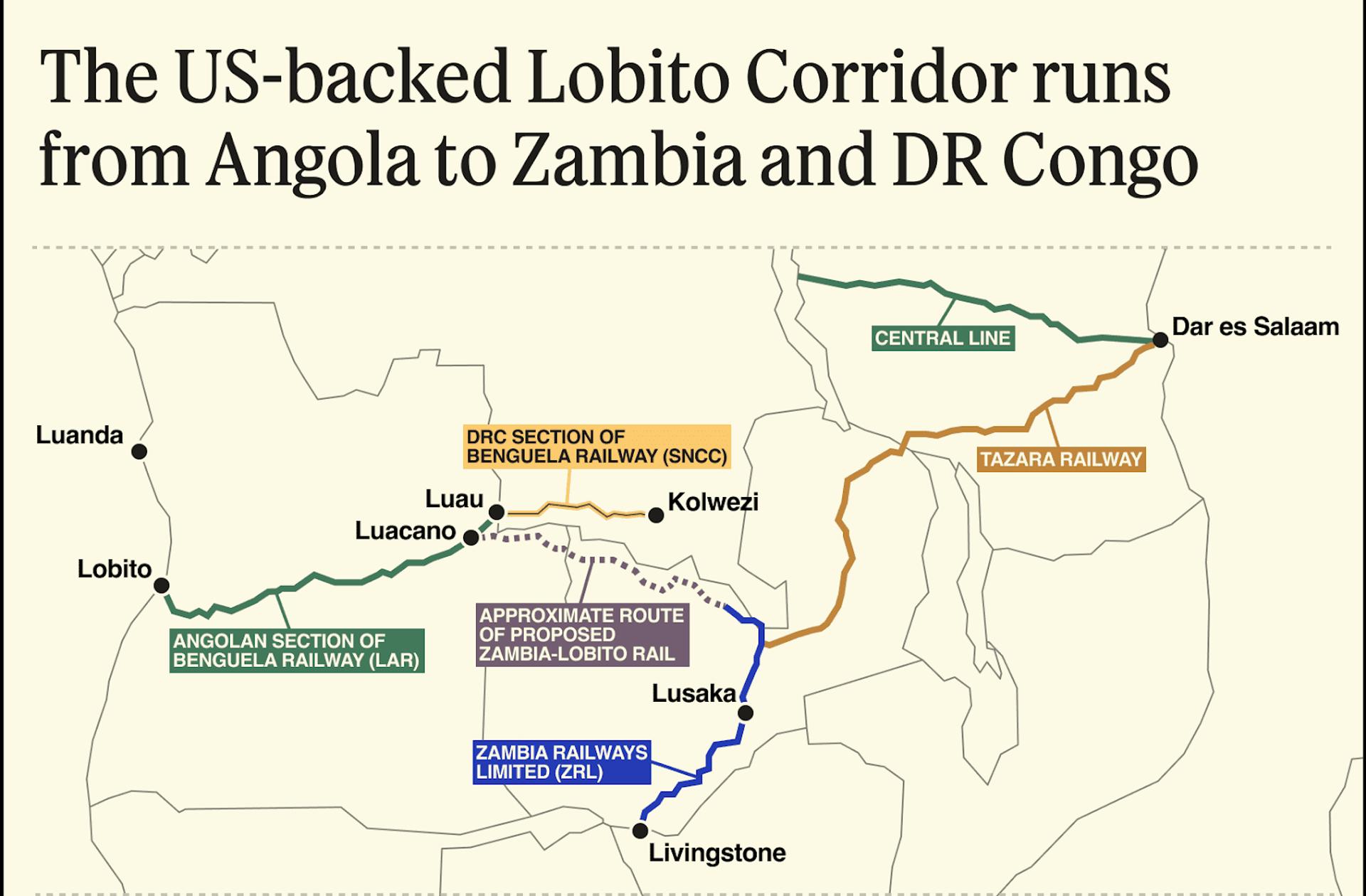The News
When US President Joe Biden touched down in Angola’s capital, Luanda, on Monday it was the culmination of several years of focus and intense lobbying by the Angolans.
But after spending nearly $20 million in lobbying fees since 2019, according to regulatory filings examined by Semafor Africa, the big question now is whether Angolan President João Lourenço’s government will face a backlash with an unpredictable Donald Trump in the White House.
At stake is the US-backed multibillion-dollar Lobito Corridor project, which includes building and revamping railways from Angola’s western Lobito port through to critical mineral hubs in neighboring Zambia and DR Congo. Biden is proudly highlighting the corridor as an exemplar of the kind of African investment that the US should support to counter Chinese influence on the continent.

Most Angolans and US-Africa watchers believe a Trump White House will ultimately keep the Lobito Corridor in place, and might even try to spin it as Trump-inspired. It was one of the first projects to be backed by the revamped US Development Finance Corp, which started in Trump’s first term. “I don’t think they will retract it’s because it’s a viable investment that showcases the viability of African infrastructure,” said Samaila Zubairu, chief executive of Africa Finance Corp, which has played a key coordinating role on the project alongside the US government.
In this article:
Know More
The United States has helped mobilize some $5 billion for the Lobito Corridor initiative, coordinating not only rail but also digital connectivity and green energy infrastructure. And, while much of the focus for Lobito has been on loosening China’s influence on the supply chain for so-called green minerals used for renewable energy batteries, there are even more immediate opportunities with the country’s agribusiness, say investors.
Luis Lelis, chief executive of BAI, Angola’s biggest bank by assets, said the corridor’s implementation would give the sector a big boost and “create jobs for the youth.”
AFC’s Zubairu agreed: “We’ve had more enquiries about [Lobitio’s] agricultural value chain than the critical minerals’. It shows that any [piece of infrastructure that unlocks value is a good thing.”
Step Back
Angolans have anticipated Biden’s visit with excitement and “expectations are high,” said Dr M’zée Fula Ngenge, chairman of Luanda-based African Diamond Council.
Angola had a tense relationship with the US for decades after independence in 1975, through the dying years of the Cold War, because its leaders were close to the Soviets. But the relationship has improved in the last couple of decades with Luanda becoming one of Washington’s closest allies on the continent.
“They’ve wanted this for years, to get recognition and respect from the US,” said Jeanine Scott, the US head of Angolan holding company Omatapalo, speaking from Luanda.
Yinka’s view
The Lobito Corridor is the kind of sprawling opportunity that everyone projects their desired outcome onto. For the outgoing White House and its Democrat supporters, it is the capstone of Biden’s US-Africa strategy. It has stood out as a success at a time when Republicans have criticized the Biden administration’s handling of conflicts in Sudan and the eastern DR Congo in the last couple of years, as well as the return of military governments in the Sahel region.
Some will see Biden’s visit to Angola as almost irrelevant now, given the wave of change sweeping through Washington DC since last month’s election — and the Angolans are watching closely. However, my sources tell me that Trump won’t change position on the Lobito Corridor for two key reasons. First, because his likely US-Africa advisors or appointees are mostly admirers of the project. They see it as a model to expand on in sub-Saharan Africa, moving away from aid and humanitarian projects to more trade and investment.
The second reason is China. While the Biden administration was subtle about naming China as a competitive reason for its actions in Africa, Trump’s White House will be much more obvious about it. With China hawks like his secretary of State nominee Sen. Marco Rubio in place, positioning Lobito Corridor as an anti-China move could see Trump doubling down on support for the initiative.
But the sheer unpredictability of Trump’s approach to policymaking means nobody can be sure how it will play out under his White House. That uncertainty is the reason some in Luanda remain nervous. These are “realistic concerns,” says Fula Ngenge.
Room for Disagreement
Angola’s Washington lobbyists have pushed back strongly at the idea a second term with President Trump would undermine the US-Angola relationship. Angola’s “fast-growing relationship” with the US started under Trump’s first term, argues Squire Patton Boggs, a Cleveland, Ohio law firm whose Washington lobbyist arm took in the majority of the nearly $20 million Angola’s government spent on lobbyists since 2019.
The firm points out that President Lourenço’s official relationship with the US dates back to his time as his country’s defense secretary in 2017 when he met with then US Secretary of Defense James Mattis.
